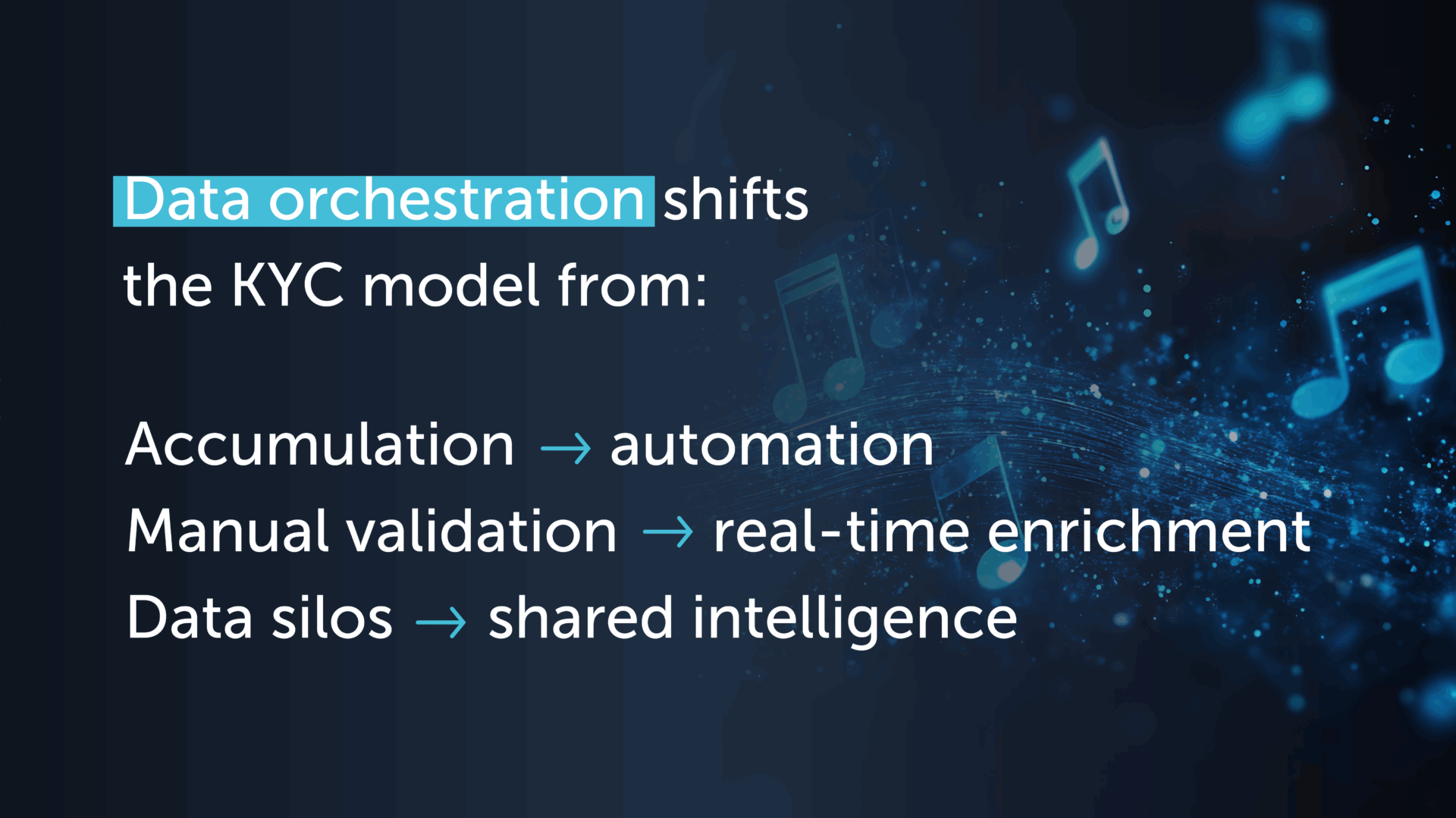How does data orchestration unlock real KYC efficiency?

For years, Know Your Customer (KYC) processes in corporate banking have been treated as a compliance obligation. Essential, but often slow, expensive and fragmented due to a lack of effective data orchestration.
That mindset is no longer sustainable. Speed, trust and data quality define competitive edge, and banks must evolve from reactive compliance to intelligent, AI-enabled, data-powered operations. But unlocking true KYC efficiency isn’t about collecting more data, it’s about orchestrating the right data, at the right time, across teams, systems and workflows.
Traditional KYC is holding banks back
Legacy KYC models rely on static data, manual document collection and disconnected systems. Compliance teams spend excessive time chasing documents, re-validating client information, and reconciling inconsistencies. Often asking clients for the same information multiple times. This approach delays onboarding and KYC reviews, drives up operational costs, and degrades both customer experience and compliance effectiveness.
A major, yet often overlooked, cost is data duplication. Banks repeatedly purchase and process the same legal entity information multiple times, across jurisdictions, teams, or vendors. Much of this data quickly becomes outdated or underutilized.
What is data orchestration?
Data orchestration addresses this challenge head-on. Rather than ingesting more feeds, orchestration introduces a strategic layer that consolidates, deduplicates, and enriches client data across the enterprise. It ensures every team works from the same, accurate, and contextual view of each customer, whether for onboarding, risk review, or regulatory reporting.
Orchestration shifts the KYC model from:
- Accumulation → to automation
- Manual validation → to real-time enrichment
- Data silos → to shared intelligence
What is Corporate Digital Identity (CDI) and why does it matter?
CDI is the foundation that enables this orchestrated model. It’s a dynamic framework that continuously integrates, verifies, and maintains client data from both public and private sources. Rather than treating data as a one-time input, CDI creates a digital profile for each corporate client, complete with real-time updates, verified documentation, and full data lineage.
In essence, CDI is the engine behind data orchestration. It brings structure, transparency, and automation to the KYC process, allowing institutions to shift from reactive data handling to proactive insight delivery.
Why “buy once, use many” matters
Traditional models are based on “buy once, use once” thinking, purchasing data for a single use case, then storing it in a silo. But modern KYC supports ongoing compliance, periodic reviews, real-time monitoring, and AI-driven analysis. This demands reusable, centrally managed data.
CDI makes this possible. With a “buy once, use many” approach, banks can rely on a single, verified digital identity to serve multiple regulatory and operational needs.
EC360: Data orchestration in action
At Encompass, EC360 delivers the orchestration capability powered by CDI. It connects data and documents from public registries, private customer information, vendor feeds, and risk databases into one unified client profile. By automating the enrichment and maintenance of legal entity data, EC360 removes the burden of repetitive tasks and ensures AI tools are fuelled with the consistent, structured data they need to deliver real-time insights.
With EC360, banks can respond more quickly to regulatory changes, streamline onboarding, and enable straight-through processing by fuelling automation and AI with high-quality, structured data.
Real KYC efficiency starts with orchestration
To compete in today’s environment, banks must rethink how they manage KYC. Traditional models are no longer fit for purpose. Data orchestration, powered by CDI, is the modern answer, enabling accuracy, reusability, and agility at scale.
Read our whitepaper to learn more:
Discover corporate digital identity from Encompass
